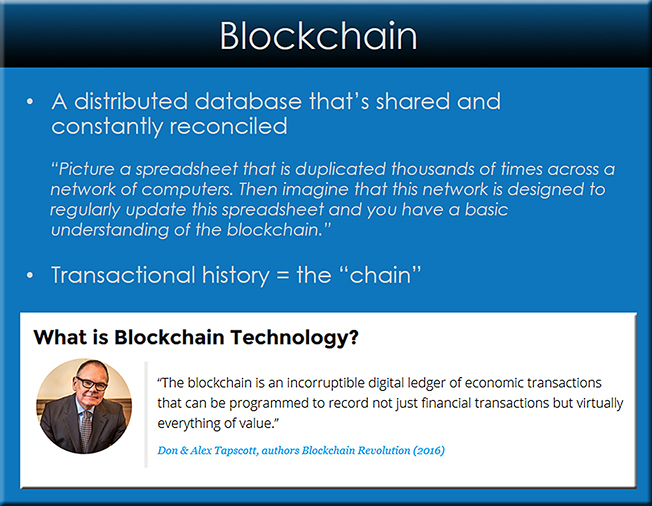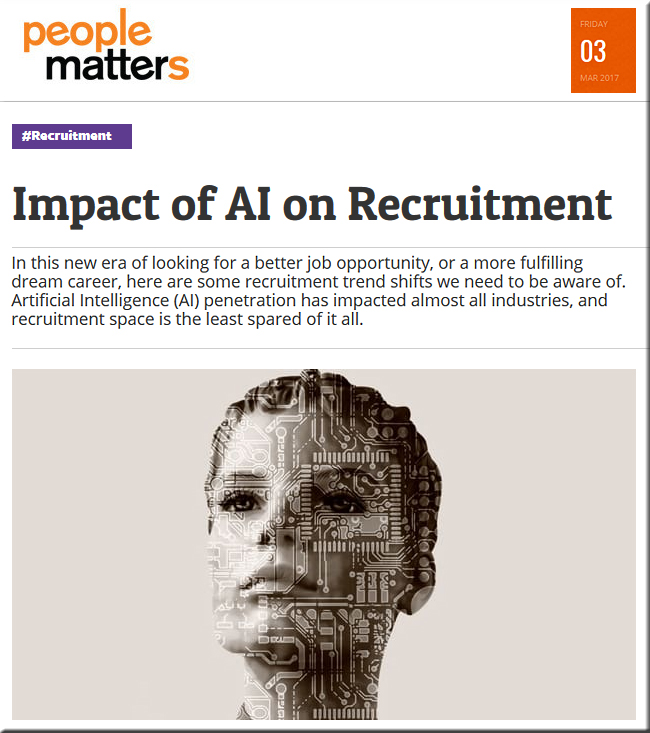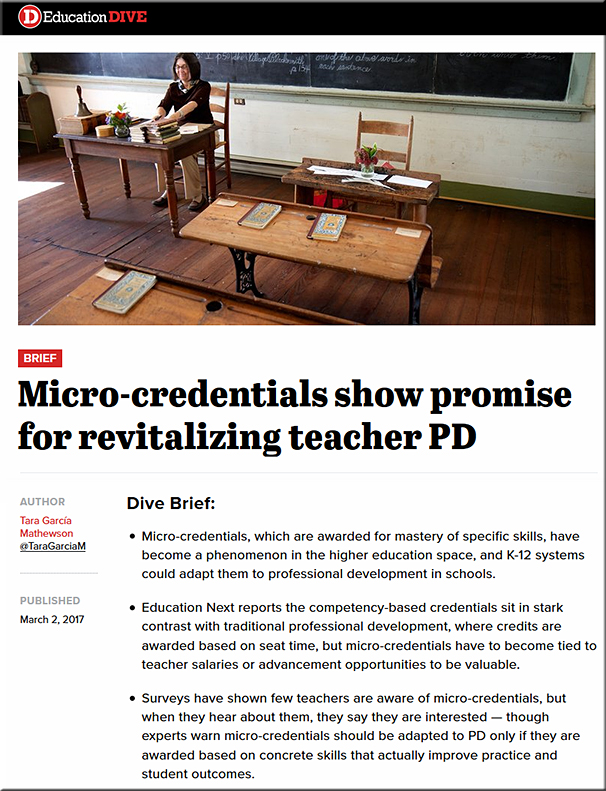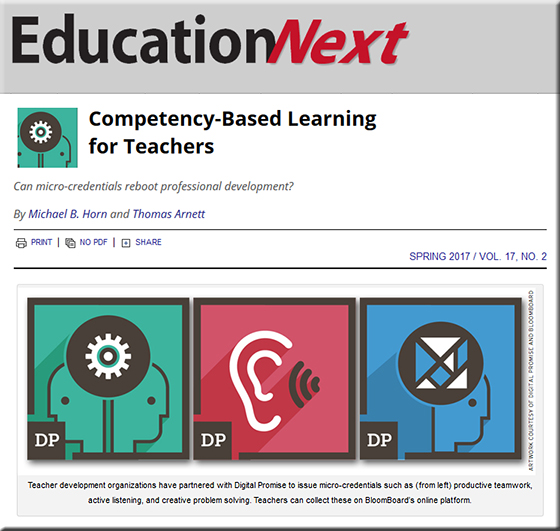From DSC:
At the recent Next Generation Learning Spaces Conference, in my introductory piece for our panel discussion, I relayed several ideas/areas that should be on our institutions’ radars. That is, at least someone at each of our institutions of higher education should be aware of these things and be pulse-checking them as time goes by.

One of these ideas/areas involved the use of blockchain technologies:

If #blockchain technologies are successful within the financial/banking world, then it’s highly likely that other use cases will be developed as well (i.e., the trust in blockchain-enabled applications will be there already).
Along those lines, if that occurs, then colleges and universities are likely to become only 1 of the feeds into someone’s cloud-based, lifelong learning profile. I’ve listed several more sources of credentials below:

Given the trend towards more competency-based education (CBE) and the increased experimentation with badges, blockchain could increasingly move onto the scene.
In fact, I could see a day when an individual learner will be able to establish who can and can’t access their learner profile, and who can and can’t feed information and updates into it.
Artificial intelligence and big data also come to mind here…and I put Microsoft on my radar a while back in this regard; as Microsoft (via LinkedIn and Lynda.com) could easily create online-based marketplaces matching employers with employees/freelancers.
Along these lines, see:
- The Mainstreaming of Alternative Credentials in Postsecondary Education — from by Deborah Keyek-Franssen
Excerpt:- The Context of Alternative Credentials
The past few years have seen a proliferation of new learning credentials ranging from badges and bootcamp certifications to micro-degrees and MOOC certificates. Although alternative credentials have been part of the fabric of postsecondary education and professional development for decades—think prior learning assessments like Advanced Placement or International Baccalaureate exams, or industry certifications—postsecondary institutions are increasingly unbundling their degrees and validating smaller chunks of skills and learning to provide workplace value to traditional and non-traditional students alike.Many are experimenting with alternative credentials to counter the typical binary nature of a degree. Certifications of learning or skills are conferred after the completion of a course or a few short courses in a related field. Students do not have to wait until all requirements for a degree are met before receiving a certificate of learning, but instead can receive one after a much shorter period of study. “Stackable” credentials are combined to be the equivalent of an undergraduate or graduate certificate (a micro-degree), or even a degree. - The National Discussion of Alternative Credentials
Discussions of alternative credentials are often responses to a persistent and growing critique of traditional higher educational institutions’ ability to meet workforce needs, especially because the cost to students for a four-year degree has grown dramatically over the past several decades. The increasing attention paid to alternative credentials brings to the fore questions such as what constitutes a postsecondary education, what role universities in particular should play vis-à-vis workforce development, and how we can assess learning and mastery.
- The Context of Alternative Credentials
Addendums added on 3/4/17, that show that this topic isn’t just for higher education, but could involve K-12 as well:











